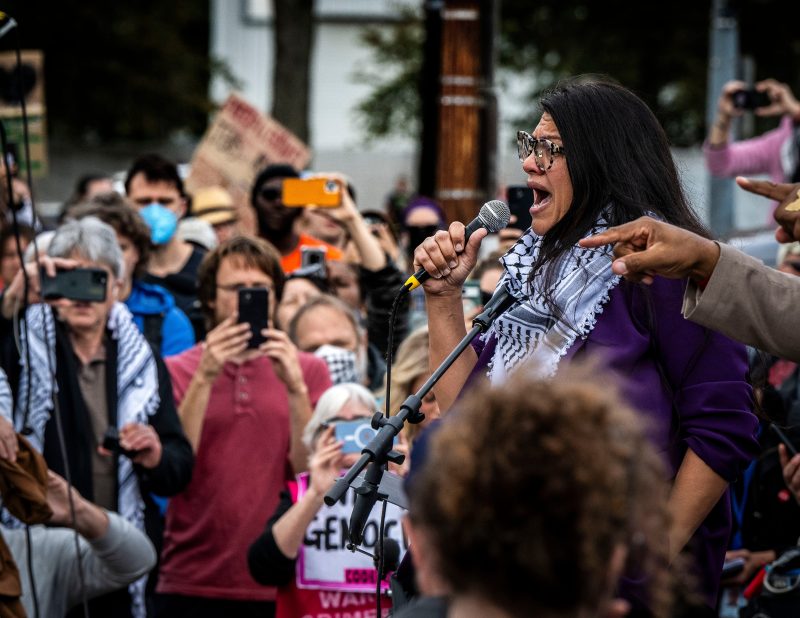The Democratic Party sustained deep divisions within its ranks this week, when an emotional dispute between two of its members over the Israel-Palestine conflict erupted into public view.
The disagreement began on Monday, when freshman Representative Ilhan Omar of Minnesota expressed her opinions on the influence of organizations such as the American Israel Public Affairs Committee (AIPAC). Omar’s comments, which suggested that AIPAC was buying influence from American officials with money, were met with swift rebuke from colleagues such as House Speaker Nancy Pelosi.
The next day, Pelosi released a statement cautioning against “using anti-Semitic tropes and prejudicial accusations about Israel’s supporters”. However, Omar was undeterred, responding to Pelosi by referring to her “shameful accusations”. This outburst of dissent followed President Donald Trump’s statement calling on Omar to “unequivocally” apologize, or step down from Congress.
Amid these conflicting statements, politicians, voters, and pundits scrambled to decipher the source of the rift. On Thursday, senior advisors from the Democratic National Committee (DNC) and other parties released an official statement calling on “all involved to be respectful and civil in their shared commitment to defending the sacred values of justice and equality.”
The incident, which is quickly devolving into a full-fledged spat between the Democratic party and supporters of Israel, is indicative of a larger climate of political discord and widening factions. It is also emblematic of the often-fraught relationship between American politicians and the Jewish state dating back to the early 20th century.
Ultimately, the debate over the nation of Israel stands to have a real and meaningful impact on the future of the Democratic Party. With factions increasingly at odds and emotions running high on all sides, only time will tell just how much of an impact this eruption will have on the party going forward.
